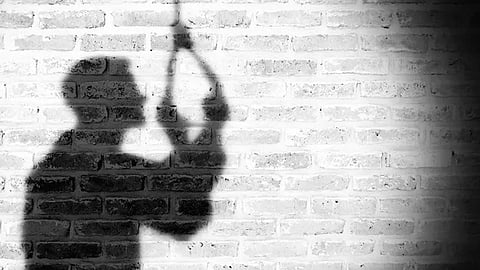

Suicide is among the top three causes of death among youth worldwide. According to the WHO, every year, almost one million people die from suicide and 20 times more people attempt suicide—a global mortality rate of 16 per 100,000, or one death every 40 seconds and one attempt every 3 seconds, on average.
On Tuesday, September 10, 2024, a new study published in The Lancet journal on World Suicide Prevention Day said, “With over 170,000 lives lost annually due to suicide in India, it is imperative to focus beyond mental health to prevent suicide cases in the country.”
Incidents of suicide in India have grown at an alarming annual rate, surpassing the population growth rate and overall suicide trends, according to a new report.
World Suicide Prevention Day is observed every year on September 10 to raise awareness about the importance of reducing stigma and encourage open conversations to prevent suicides. The theme this year is "Changing the narrative on suicide."
Suicide rates are generally higher among males compared to females in India. Males have higher suicide rates in middle and older ages.
According to journal articles on the epidemiology of suicide in India based on the NCRB data, it suggests that high male suicide rates among middle-age groups suggest "that because males play the traditional role of—“breadwinners”—in India and failure to provide for the family during the middle age, for example, due to loss of employment, might result in higher suicide rates.”
“There is a fairly strong association between unemployment rates and suicide, but the nature of this association is complex. Unemployment may drive up the suicide risk through factors such as poverty, social deprivation, domestic difficulties, and hopelessness,” stated the NCBI.
The Lancet Series showed that in India, higher suicide rates in males are observed in states with higher levels of unemployment. Unemployment also appears to be one of the most important risk factors for suicide in Indian females.
The suicide rate among unemployed females in India was found to be 94·8 per 100,000 people, compared with 12·6 per 100,000 people for professional or salaried employees, 11·6 per 100,000 people for those who were self-employed, and 4.3 per 100,000 for students.
The series highlights how clinical treatment services are critical for people in a suicidal crisis, but upstream measures that address social factors must also be included in national suicide prevention strategies to prevent people from reaching crisis points.
This is particularly relevant for India, which released the National Suicide Prevention Strategy in 2022, with the experts in suicide prevention highlighting the need for the country to widen the way suicide is viewed to also include social risk factors—such as poverty, debt, domestic violence, addictions, and social isolation—alongside mental health.
According to data from the National Crime Records Bureau (NCRB), 1.71 lakh people died by suicide in 2022. The suicide rate has increased to 12.4 per 1,000—the highest rate ever recorded in India.
Data from the NCRB reports based on police records that are published every year highlight the reasons why people take their lives. Dandona noted these "include poverty, debt, financial hardships, domestic issues, domestic violence, family relationship issues, bullying, and peer pressure."
In line with the theme, a new six-paper series published in The Lancet Public Health, argues that a change in the narrative is needed to move from presenting suicide as a purely mental health issue to acknowledging the impact of social risk factors.
"Suicide so far, unfortunately, has been stigmatised as a crime, but suicide is actually a complex public health issue. Focus to date has been on mental health for suicide prevention, which is important, but we have enough data now to show that we need to broaden our focus beyond mental health for suicide prevention," series author Dr. Rakhi Dandona, Professor of Public Health at the Public Health Foundation of India (PHFI), told IANS.
Disclaimer- If you are facing any kind of mental harassment or disturbance, True Scoop appeals to you to contact experts or talk to your elders.